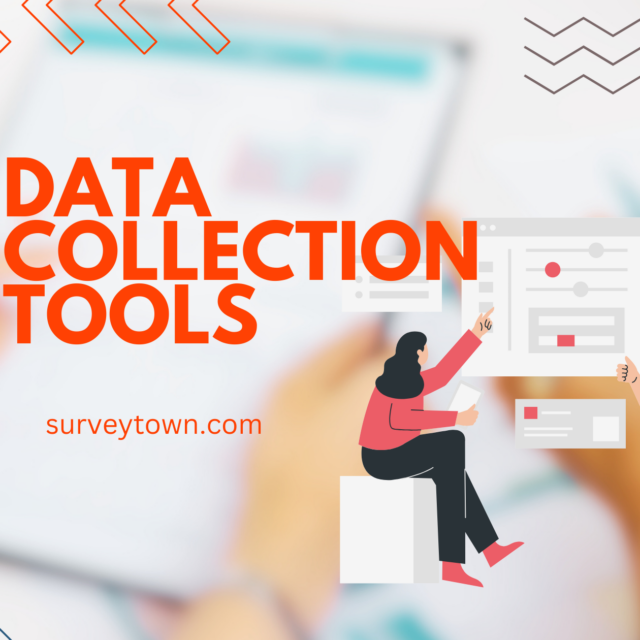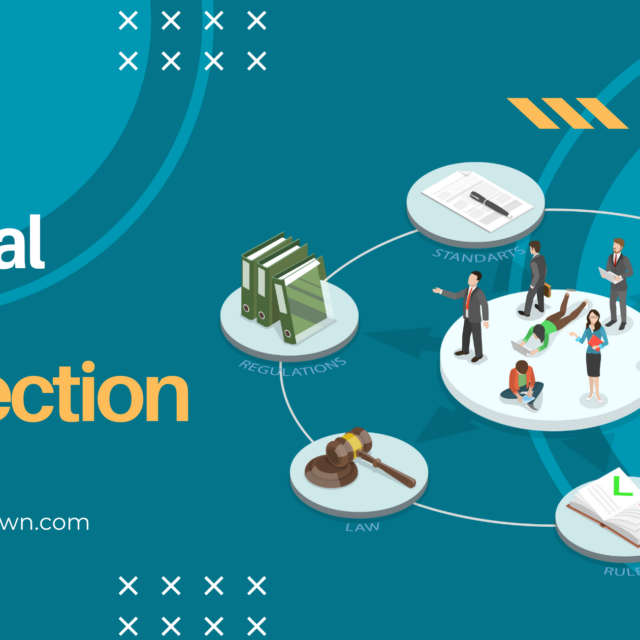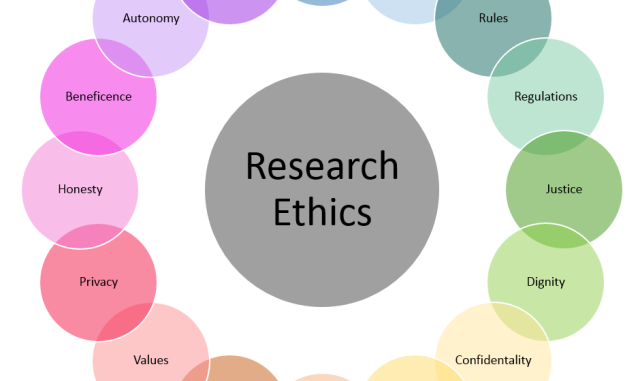As seasoned experts in data collection, we understand the pivotal role it plays in shaping decisions. In today’s digital era, businesses and organizations heavily rely on precise and up-to-date data to drive their strategies and make informed choices. Without proper data collection methods, these decisions would be mere shots in the dark rather than grounded in solid evidence.
This article will provide you with all the info on data collection!
The significance of accurate and timely data cannot be overstated. Firstly, it offers invaluable insights into customer behavior, market trends, and industry dynamics. By harnessing relevant information about your target audience or specific market segment, you gain a profound understanding of their needs and preferences. Armed with this knowledge, you can tailor your products or services to perfection, elevating customer satisfaction levels while fostering unwavering loyalty.
Secondly, employing effective tools for data collection can revolutionize efficiency within an organization. By automating the process through cutting-edge digital platforms or software applications specifically designed for this purpose, companies save precious time and resources that would otherwise be squandered on manual data-gathering endeavors. This streamlined approach not only boosts productivity but also minimizes room for error.
In essence, comprehending the paramount importance of accurate and timely data is non-negotiable for any business or organization striving to make sound decisions. By skillfully utilizing efficient tools and methods for collecting valuable insights from various sources such as surveys or interviews – both online or offline – you pave the way towards strategic triumphs that will set your venture apart from competitors.
Types of Data Collection Tools and Methods
When it comes to gathering data, there is a wide array of tools and methods at your disposal. Understanding these options will empower you to choose the most effective approach for your research needs. Let’s delve into some of the key types of data collection tools and methods:
1. Surveys
Surveys are an incredibly popular method for collecting data. By posing a series of questions to a targeted group or population, surveys enable you to gather opinions, preferences, or experiences. You can conduct surveys through various mediums, such as online platforms, questionnaires, or even face-to-face interviews.
2. Interviews
Interviews provide researchers with an invaluable opportunity to engage in direct conversations with individuals or groups in order to collect qualitative data. This method allows for deep exploration of topics and offers valuable insights into participants’ thoughts and perspectives.
3. Observations
Observational methods involve systematically observing and recording behaviors or events as they occur naturally without any interference from the researcher. This technique proves particularly useful when studying human behavior in natural settings like classrooms, workplaces, or public spaces.
4. Secondary Data Collection
In addition to primary data collection methods like surveys and interviews, researchers often rely on secondary sources such as existing databases, reports, articles, or government records. These sources offer valuable insights without requiring additional time-consuming efforts.

Each type of tool has its own advantages and disadvantages depending on your research goals:
- Surveys offer scalability since they can be distributed among a large number of participants; however, their responses may lack depth.
- Interviews provide rich qualitative data but require more time and effort.
- Observations allow for direct observation of behaviors, but the presence of the researcher may influence results.
- Secondary data collection methods save time and resources, although the available information may not always align perfectly with your research objectives.
When selecting a data collection method, consider factors such as the nature of your research question, the type of data you require (quantitative or qualitative), and the resources at your disposal. For instance:
- If you are conducting market research on consumer preferences for a new product launch, surveys would be an effective tool to gather quantitative data from a large sample size.
- Conversely, if you aim to study employee satisfaction within an organization and gain an in-depth understanding of their experiences, interviews would provide valuable qualitative insights.
Utilizing both primary and secondary methods allows you to triangulate your findings and validate the accuracy and reliability of your results. This holistic approach ensures that you have a well-rounded perspective on the topic at hand.
By carefully considering these factors and choosing appropriate tools and methods tailored to your specific needs, you can ensure that your data collection efforts yield accurate and meaningful results.
Choosing the Right Data Collection Tool for Your Needs
When it comes to data collection, selecting the right tools and methods is absolutely crucial. As an expert in this field, I understand the importance of finding the most effective means to gather accurate and reliable information. Let me guide you through some key factors that will help you make informed decisions when choosing your data collection tools.
1. Purpose
The first step is to determine the purpose of your data collection. Are you looking to collect quantitative or qualitative data? Quantitative methods focus on numerical measurements and statistical analysis, while qualitative methods delve into understanding experiences, opinions, and behaviors in-depth.
2. Research Question
Carefully consider your research question. What specific information are you trying to gather? This will serve as a compass guiding you toward the most suitable tools for collecting that particular type of data.
3. Time Constraints
Evaluate how much time you have available for data collection. Some methods may require more time than others due to their complexity or the need for extensive training. It’s important to choose a tool that aligns with your timeline without compromising accuracy.
4. Budget
Take into account your budgetary constraints when selecting a tool or method. While there are many free options available, keep in mind that advanced features may come at an additional cost. Find a balance between affordability and functionality.
5. Accessibility
Consider who needs access to the tool and where they will be using it. If multiple team members need access or if remote work is involved, opt for a tool that offers online collaboration capabilities so everyone can contribute seamlessly.
6. User-Friendliness
Ease of use is paramount when it comes to selecting a data collection tool or method; after all, no one wants unnecessary complications! Look for intuitive interfaces with clear instructions that cater to users with varying levels of technical expertise.
Remember that there is no one-size-fits-all solution when it comes to data collection tools. It’s essential to evaluate each option based on your specific needs and requirements. By carefully considering these factors, you will be able to choose the best data collection tools and methods that align with your goals, ensuring accurate and reliable information for your research or decision-making process.
Top Data Collection Tools in the Market
When it comes to gathering valuable information, the methods and tools you use for data collection can make all the difference. In today’s digital age, there is an abundance of options available that cater to different research needs and objectives. As seasoned experts in this field, we have firsthand experience with various data collection techniques and tools, allowing me to guide you through the best ones on the market. Whether your focus is on quantitative or qualitative research, there are several effective tools at your disposal.
1. SurveyTown
As a team that has extensively used various data collection instruments, we highly recommend SurveyTown as one of the most effective tools for conducting surveys. This web-based software offers a user-friendly interface with customizable survey templates and advanced question types. It also provides real-time analytics and reporting capabilities, allowing you to gather valuable insights quickly.
Pros:
- User-friendly interface for creating surveys
- Wide range of question types
- Real-time analytics for immediate feedback
- Customizable survey templates for consistent branding
Cons:
- Limited customization options compared to other platforms
- Advanced features may require additional training or support
2. Qualtrics
Another widely used tool among researchers is Qualtrics. Renowned for its robust features and flexibility, this platform enables users to create complex surveys effortlessly. With its extensive library of pre-built questionnaires and powerful reporting capabilities, Qualtrics is ideal for both small-scale studies and large-scale research projects.
Pros:
- Extensive library of pre-built questionnaires
- Advanced logic branching options for personalized surveys
- Powerful reporting capabilities with real-time results tracking
- Integration with other software systems such as CRM or HRIS
Cons:
- Steeper learning curve compared to simpler survey tools
- Higher pricing plans may be costly for smaller organizations
3. Google Forms
If you’re looking for a free option without compromising functionality, Google Forms is an excellent choice. This web-based tool allows users to effortlessly create simple yet effective online surveys. With its intuitive interface and seamless integration with other Google products, such as Sheets for data analysis, Google Forms is a popular choice among individuals and small businesses.
Pros:
- Free to use with a Google account
- Easy-to-use interface for creating surveys
- Seamless integration with other Google products
- Real-time collaboration for team-based projects
Cons:
- Limited customization options compared to paid survey tools
- Advanced features may be lacking for complex research studies
4. SurveyMonkey
As one of the pioneers in online survey software, SurveyMonkey has established itself as a reliable tool for data collection. With its extensive range of question types and customizable templates, this platform caters to various research needs. Additionally, SurveyMonkey offers advanced features like skip logic and A/B testing, making it suitable for both simple and sophisticated surveys.
Pros:
- Wide range of question types
- Customizable templates for quick survey creation
- Advanced features like skip logic and A/B testing
- Integration with popular third-party applications
Cons:
- Basic plan limitations on the number of questions or responses per survey
- Higher pricing plans required to access advanced features
5. Typeform
When it comes to gathering information from your target audience or market, Typeform offers a wide range of features and capabilities. Whether you’re conducting quantitative or qualitative research, this web-based software has got you covered.
Pros:
- User-friendly platform
- Customizable templates and a drag-and-drop editor
- Built-in analytics dashboard
- Interactive question types, including video-based questions and conditional logic
Cons:
- Pricing plans may not be suitable for those with limited budgets
- Syncing data requires an internet connection

By carefully considering your specific research requirements and budget constraints, you can select the best data collection tool that aligns perfectly with your goals. Remember that each tool has its own strengths and weaknesses; therefore, it’s essential to evaluate them based on your unique needs.
Implementing Data Collection Tools and Methods
Implementing data collection tools and methods is an essential step in any research endeavor. It sets the foundation for accurate, reliable, and insightful data analysis. In this section, we will delve into expert strategies on how to successfully implement your chosen data collection tools and methods.
- Ensuring Accuracy and Reliability
- Define your research objectives with precision: Before diving into data collection, have a crystal-clear understanding of your research goals. This clarity will guide you in selecting the most effective tool or method for gathering relevant information.
- Empower your team through training: If you’re working with a team of researchers or interviewers, provide them with comprehensive training on utilizing the selected tools proficiently. This ensures minimal errors during the data collection process.
- Conduct pilot tests for seamless implementation: Prior to commencing actual data collection, conduct pilot tests to identify potential challenges or issues that may arise along the way. These tests allow you to refine your approach and ensure smooth sailing throughout.
- Analyzing and Interpreting Collected Data
- Cleanse and organize collected data meticulously: Once all necessary information has been gathered, cleanse and organize it diligently for analysis purposes. Eliminate duplicate entries or irrelevant responses that could skew results.
- Leverage cutting-edge software for advanced analysis: Depending on whether you’re dealing with quantitative or qualitative data (or both), choose appropriate software equipped with powerful analytical capabilities from among various options available in today’s market.
- Uncover patterns using statistical techniques when applicable: For quantitative datasets, consider applying statistical techniques like regression analysis or hypothesis testing to unveil hidden patterns or relationships within your dataset.
- Upholding Ethical Considerations
- Safeguard participant confidentiality at all costs: Protect participants’ personal information by anonymizing their responses whenever possible throughout the entire data collection process.
- Prioritize informed consent from participants: Obtain explicit and informed consent from all participants before collecting any data. Clearly communicate the research’s purpose and how their information will be utilized, and reassure them of their right to withdraw at any time.
- Adhere to ethical guidelines specific to your field or industry: Familiarize yourself with the ethical guidelines relevant to your area of expertise and ensure that your data collection methods align with these standards.
By implementing these expert strategies, you can optimize the effectiveness of your chosen data collection tools and methods. Remember, accurate and reliable data serves as the bedrock for making well-informed decisions based on robust evidence.
Conclusion: Making the Most of Your Data Collection
In order to truly harness the power of your data, it is crucial to employ effective methods and tools for both quantitative and qualitative data collection. Whether you are conducting market research, gathering information from web analytics, or seeking insights through focus groups and interviews, choosing the right tools can make all the difference in obtaining accurate and valuable data.
When it comes to quantitative data collection, surveys, and questionnaires have proven to be one of the most reliable instruments. With online survey software readily available, you can easily design surveys tailored to your specific research needs. These digital tools not only streamline the process but also provide real-time analysis capabilities that allow for quick decision-making based on actionable insights.
On the other hand, qualitative data collection techniques such as observation and interviews offer a deeper understanding of human behavior and motivations. By engaging with individuals directly or observing their actions in natural settings, you can uncover rich insights that go beyond mere numbers. Utilizing specialized software for transcription or content analysis can further enhance your ability to extract meaningful patterns from these qualitative sources.
It is important to note that there is no one-size-fits-all approach when it comes to selecting data collection methods. The best tool for your research will depend on factors such as your research objectives, target audience, resources available, and time constraints. Therefore, taking a thoughtful approach by considering various options before making a decision is essential.
Remember, effective data collection is not just about gathering information; it’s about using the right tools and methods to extract actionable insights that propel you toward success. So take advantage of the plethora of digital tools available today, leverage both quantitative and qualitative approaches where applicable, and make the most out of your data collection endeavors.





